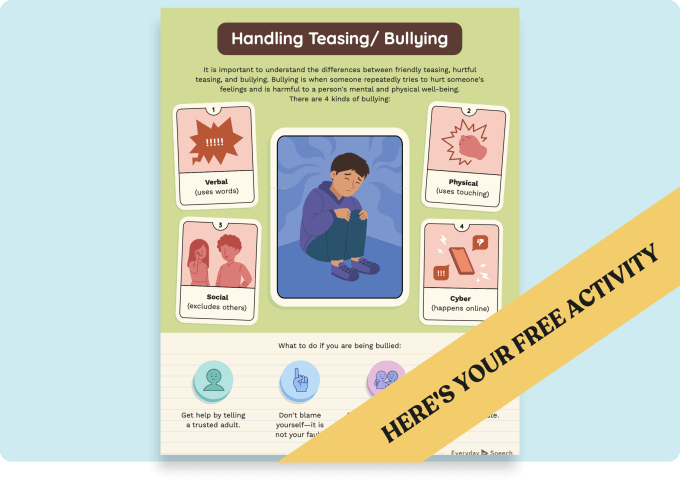Enhancing Listening Skills in Special Education: No-Prep Activity and Discussion
Get free social skills materials
No-prep lessons on self-regulation, emotional recognition, conversation skills, and more.
Sign up hereIntroduction
Listening is a crucial skill for students in special education, as it enables them to better understand the world around them and improves their social interactions. In this blog post, we will explore an engaging no-prep activity designed to enhance students’ listening abilities. We will also provide discussion questions to stimulate further conversations and mention other related skills that can benefit students in special education settings.
No-Prep Activity: “The Listening Game”
This activity requires no preparation or materials from the educator. Here’s how to conduct “The Listening Game” in your classroom:
- Ask students to sit in a circle or face each other in a comfortable arrangement.
- Explain to the students that you will be reading a short story or giving a set of instructions and they need to listen carefully.
- After reading the story or giving the instructions, ask a student to retell the story or repeat the instructions as accurately as possible.
- Encourage other students to add any missing details or correct any inaccuracies.
- Repeat the process with different stories or instructions and ensure every student gets a chance to participate.
This activity helps students practice active listening and develop their ability to focus on and retain information shared by others.
Discussion Questions
After completing the no-prep activity, use these questions to stimulate further discussions:
- How can practicing listening skills improve our communication with others?
- What strategies can we use to stay focused and avoid distractions while listening?
- How can we show others that we are actively listening to them?
- Why is it important to ask for clarification if we don’t understand something?
- Can you think of a situation where good listening skills would be especially important? Why?
Related Skills
In addition to listening, students in special education can benefit from developing other related social-emotional learning skills:
- Empathy: Understanding and sharing the feelings of others can help students build stronger relationships and be more compassionate listeners.
- Self-awareness: Recognizing their own emotions and needs can enable students to communicate more effectively and understand when they need to take a break or practice self-care.
- Self-regulation: Managing emotions and impulses can help students stay focused during conversations, making them better listeners.
- Effective communication: Learning how to express themselves clearly and respectfully can enhance students’ overall communication abilities, including their listening skills.
Next Steps
If you found this activity and discussion helpful, consider exploring more resources designed to support students in special education settings. To access free samples of social-emotional learning materials, including those related to listening skills, sign up at Everyday Speech.


